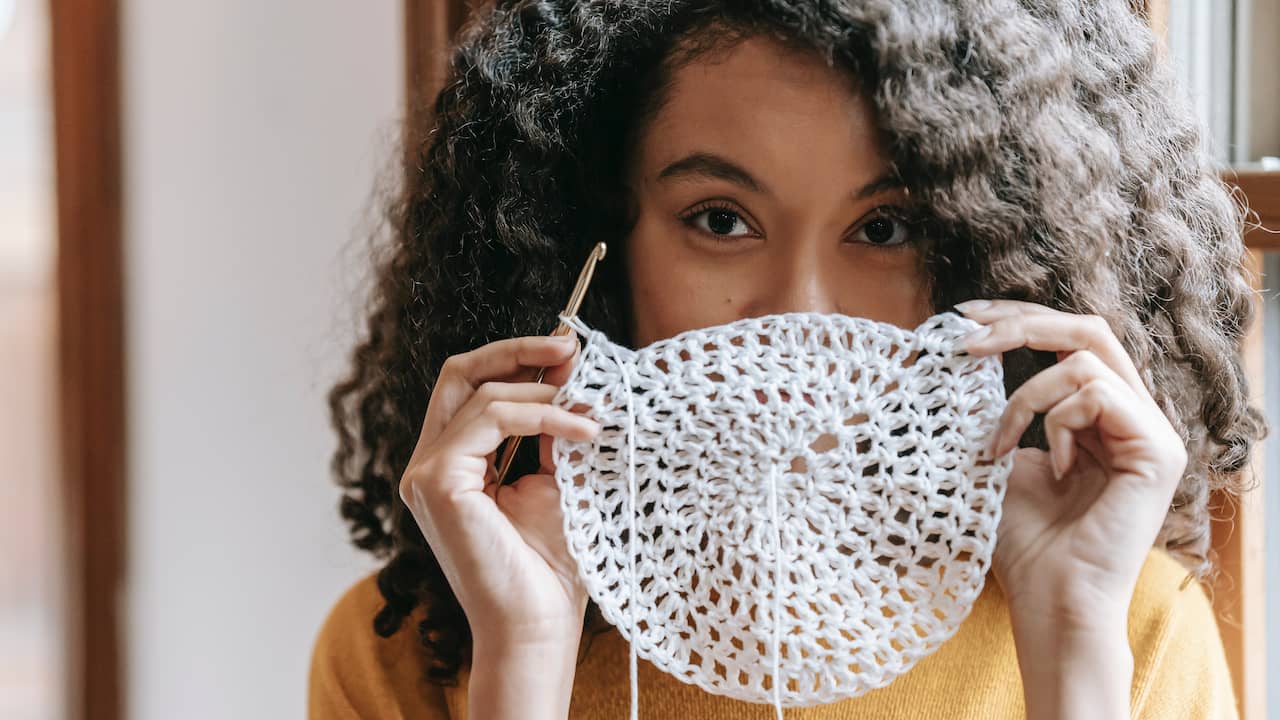Last summer, he said NBC News that some young people have chosen the sofa rather than the club and there openly on social media. This trend has continued and also has supporters in the Netherlands. Young people are increasingly embracing their “grandmother era” more openly. In the videos they talk candidly about the less grand and exciting things they undertake.
Patti M. Valkenburg, professor of Media, Youth and Society at the University of Amsterdam, also sees the trend. “It started a few months ago with the style of clothing: loose clothing, light colors, straw hats and natural fabrics such as linen. But now it also adds domestic lifestyle and hobbies such as knitting, crochet or puzzles”.
Hence the name grandmother’s time?
Literally means: it was from the grandmother. Young people are embracing hobbies and activities typically associated with older generations. They give in to the desire for tranquility and “boredom”.
Volg GeneratieNU
Receive notifications of new how-to articles for young adults.
The pandemic has taught young people that sitting still is okay
During the pandemic, we have returned to slow chases. Busy life has come to a standstill, the only place you could fall back on was your lazy couch. According to Bram Peper, a sociologist at Tilburg University, the desire for a grandmother’s time originated at that time. “Young people have learned that you survive even if you don’t participate for a while. And that getting lost in domestic hobbies is very relaxing.”
Of it was grandma’s-trend that emerged after the lockdown, at a time when everything is possible again. Young people therefore very consciously choose not to participate in the daily rat race, it is not imposed on them by anyone. Sociologist Peper understands that: “We live in an overly efficient world where technological developments go faster than our brains can handle. The large number of burnouts, quiet abandonment (do not do more than necessary at work – ed.) e grandmother’s time are logical consequences of that.” He thinks it’s good that young people are open on social media about their penchant for slow-moving activities.

Being openly engaged in the home lifestyle connects
According to Valkenburg, there is something paradoxical about sharing the desire for domesticity on TikTok. “Young people are more comfortable but at the same time are more or less in close contact with like-minded people via social media.” By telling on TikTok about their home life, you ensure that you are “just” together. However, the expert believes that such an open embrace of the “grandmother era” does something: “There are young people who often feel lonely and lead a more withdrawn life. Some of them will find themselves in the grandmother’s timetrend and connect with it.” As a result, they start to feel better.
It should be noted that this may not be the case for everyone. Staying home a lot can also have the opposite effect, whereby young people become more isolated. “Loss of social contacts can be harmful,” warns Peper. According to Valkenburg, you see it in a small group of guys who retreat to their room and mostly live there in their game world.
This effect is an exception, though. “Young people’s use of social media is huge with the arrival of TikTok. And that use often happens with friends, to laugh about it and learn from it,” says Valkenburg. Pepper adds that the “grandma era” on TikTok creates a sense of togetherness. “BookTok (film about reading books, ed) is also a good example”.
Isolating yourself and yet being connected, that’s what life as a young grandmother is all about. Nothing wrong with that, right?
Unfortunately, this content cannot be viewedWe do not have permission for necessary cookies. Accept cookies to view this content.


